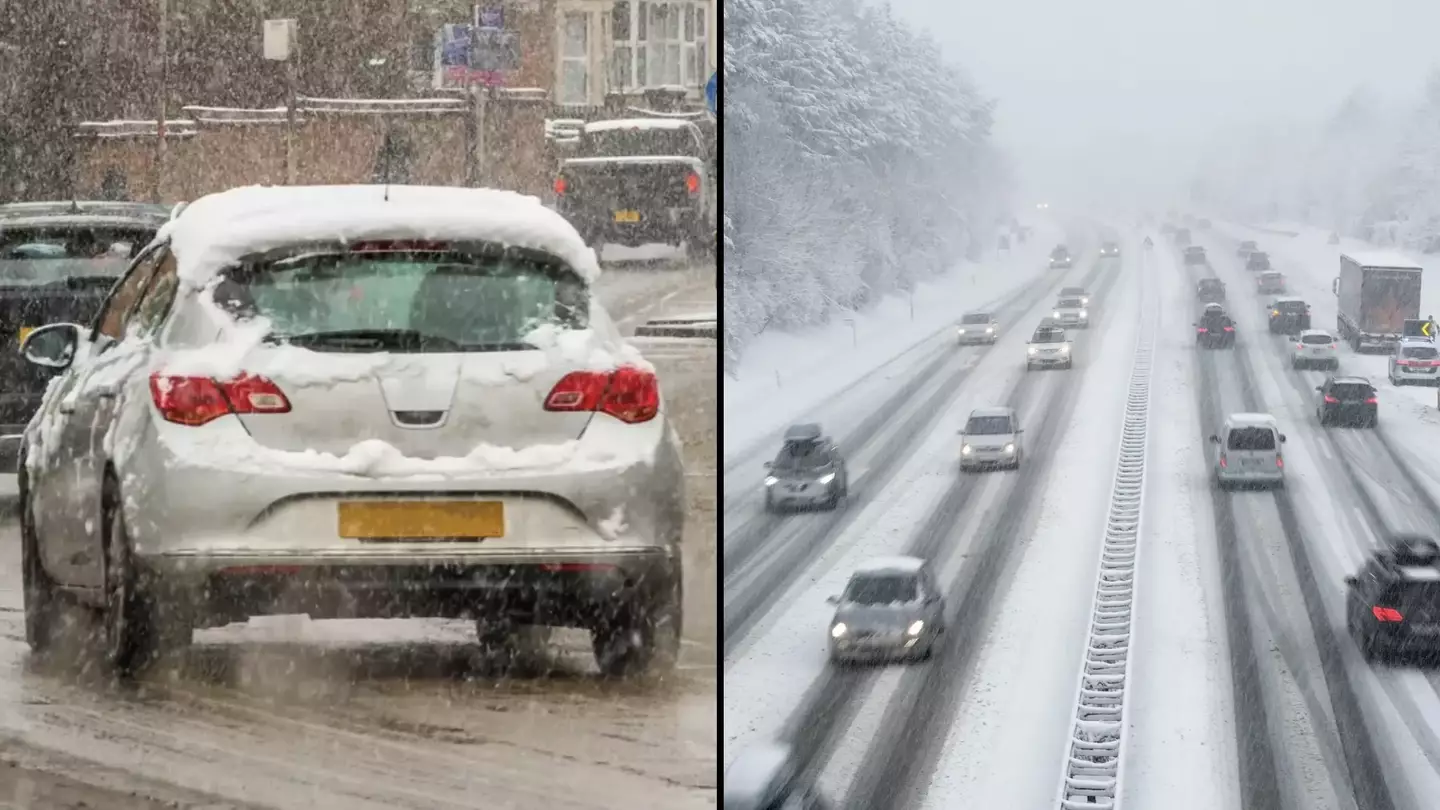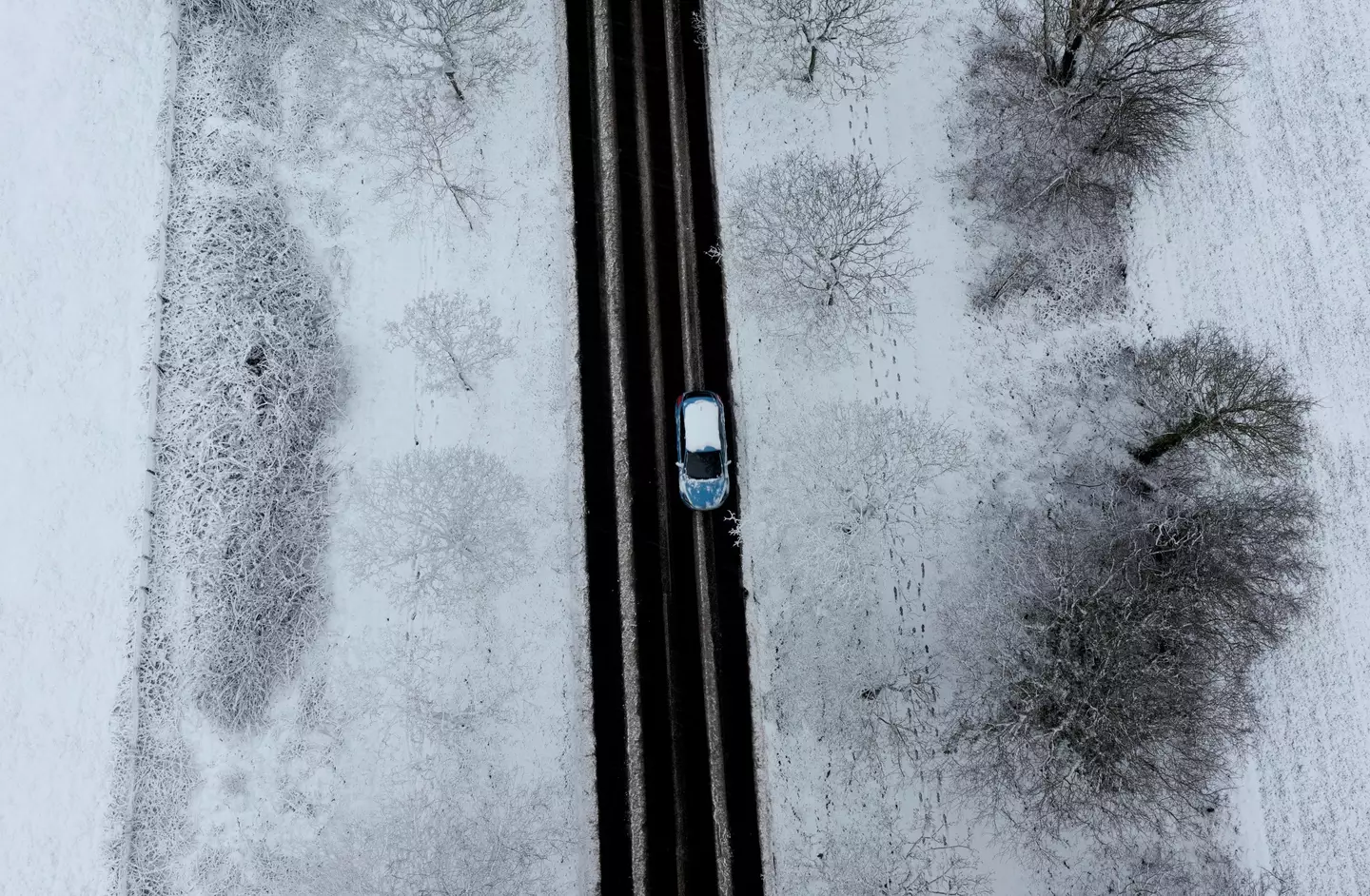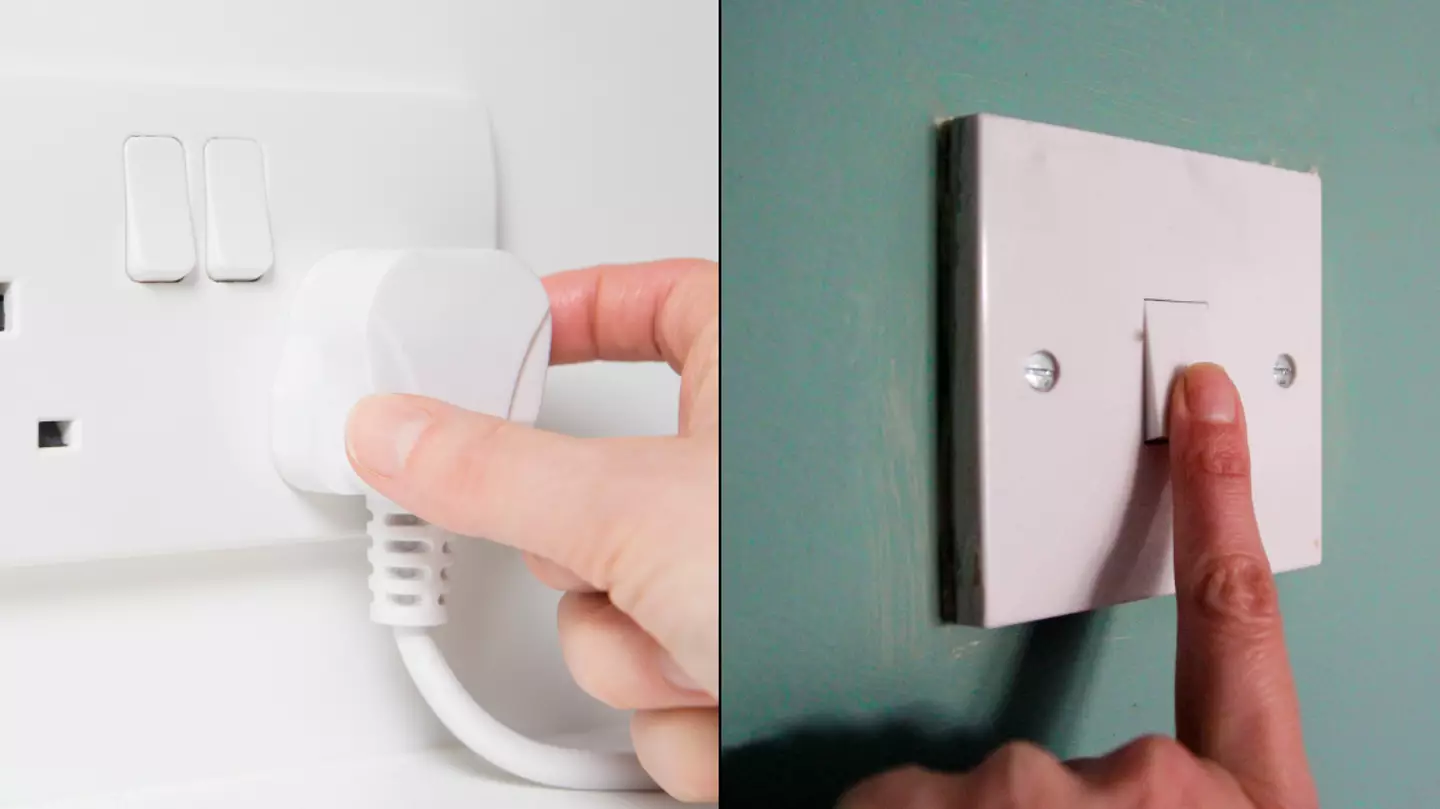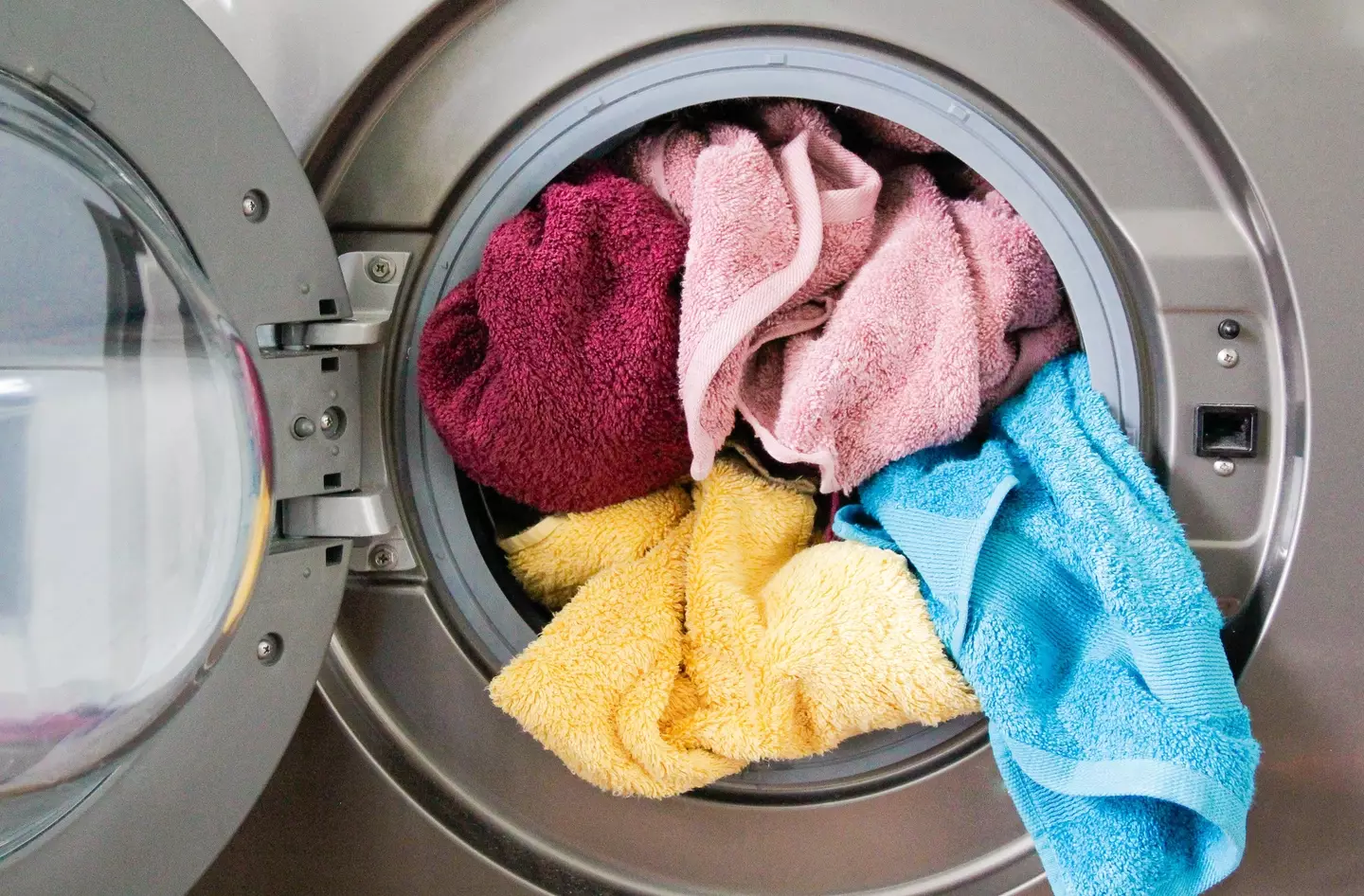
If you’re guilty of writing rude words while sending money, then you might want to think again
When transferring money to a mate, it can be tempting to make a joke on the statement’s ‘reference’ section.
But if you’re guilty of writing rude words while sending money, then you might want to think again.
Apparently, it’s a huge no-no, with one mortgage advisor explaining why writing inappropriate words on bank statements could land you in trouble if you’re trying to get a loan.

It’s best not to use inappropriate words on your bank statements (Getty Stock Photo)
If you’ve ever gone through the process of buying a property, you’ll know that it’s a pretty pain-staking process, made up of multiple stages, endless paperwork and a lot of box-ticking.
Which is why it’s important to make sure the process goes as smoothly as possible, in order to avoid any hurdles or delays.
Now, one mortgage advisor who has been sharing guidance on TikTok, has explained why making sure your bank statements look a certain way is so crucial.

Getting a mortgage can be a difficult process (Getty Stock Photo)
He explained how important it is that people avoid using any rude or inappropriate words in their statement references.
After warning people against showing evidence of gambling in their bank statements, he added in a follow-up clip: “The second really important thing to avoid showing on your personal bank statements when applying for a mortgage are any rude or inappropriate references next to money that you and your friends send each other.
“Yes, as an adviser, it can be quite funny to read, but unfortunately lenders don’t see it that way and they will ask questions, which can work out pretty unfavourably if they perceive you to be A – engaged in an illegal activity, or perhaps B – that you will be repaying the mortgage through the likes of ‘drug money.'”
Commenting on the clip, he added: “This completely depends on the bank & its underwriting process, some couldn’t care less & some are required to flag it – better safe than sorry IMO.”

Lenders don’t like it when you use inappropriate words on bank statements (Getty Stock Photo)
Responding to the advice, people were quick to comment on the clip, with one writing: “Maybe lenders need to get a sense of humour and lend based on previous lending record only not jokes between friends.”
While another said: “I had to explain when applying to rent a house that the reference ‘money for druuuuuuugzzzz’ was just my friend being funny.”
Meanwhile one said they would struggle to stop their friends pulling the same joke, adding: “Can’t exactly stop my mates doing this.”
You’ve been warned.Featured Image Credit: LADbible / Getty Stock

Lucy Devine
Advert
Advert
Advert

Updated 07:46 19 Nov 2024 GMTPublished 07:35 19 Nov 2024 GMT
Brits warned about huge risk if driving to work with snow on top of their car
If there’s snow atop your car, you shouldn’t drive very far

Depending on where you live in the UK, it actually snowed and the snow stuck, leaving you with a picturesque dusting of arctic weather atop your surroundings.
This is only really for the north of England and above as the Met Office told people that colder weather would open the way for a splash of winter weather in some parts of the UK, whereas other parts haven’t been so afflicted.
As lovely as a dusting of snow might look on the landscape, it does pose some health risks, and not just because of the cold temperatures needed to sustain it.
Of course, it’s going to make the roads more slippery, meaning anyone getting behind the wheel of a car as they commute to work is going to need to be more careful as they make their way.
However, there’s another risk posed by the snow which isn’t about the stuff that’s stuck to the roads.
.jpg)
You’re going to want to brush that snow right off. (Dan Kitwood/Getty Images)
If the snow is sticking on the roads then it’s likely also sticking to the roof of your car and that’s uno big problemo, as the Spanish would say if they ever had snow on top of their cars.
In the UK, it’s not illegal to drive with snow on top of your car, but depending on how that winter weather feature falls off it could end up landing you in trouble.
First off, if snow falls off the roof and onto your car windows it’s going to block your view, which is exceedingly dangerous, and secondly, that could land you in legal trouble.
Here’s the technical stuff, the Highway Code says that if you are driving in adverse weather conditions you must be able to see out of every glass panel in your vehicle – and that is by law.
Section 41D of the Road Traffic Act 1988 supports this meaning it is a legal requirement to have a clear view of the road before you set off.

Even if there’s only a little bit of snow you’ll want to get rid of it, or you could get points on your licence. (PAUL ELLIS/AFP via Getty Images)
Rule 228 of The Highway Code adds that you must ‘remove all snow that might fall off into the path of other road users’.
Failure to abide by this rule could land motorists a £60 fine and three penalty points.
The RAC advise motorists to de-ice their windscreen on the outside and thoroughly de-misted on the inside before setting off.
Even if it’s just a short drive, you’ve still got to make sure there’s no snow blocking up any of your windows. A safe way to guard against that is to clear it away and scrape any snow that might fall off the top of your car out of the equation.
Drive safe.
Additional words by Anish Vij.Featured Image Credit: Getty Stock Images
Topics: UK News, Weather, Cars

Joe Harker
Advert
Advert
Advert

Published 13:04 5 Feb 2024 GMT
Brits warned about today’s huge change which will affect how you watch your favourite shows
Things have changed forever for so many of our favourite things to watch

Little is as annoying as being fully immersed in a film, getting to a climactic scene, and bam – it’s time for adverts and you’re brought back to reality.
Before the days of streaming it was a standard experience on terrestrial or digital TV, with uninterrupted feature length films being something reserved mainly for the BBC or the cinema.
I mean, who doesn’t remember their parents using these moments to go and make you a cup of tea – so we’d be lying if we said they didn’t come without any benefits.
The Boys season 4 trailer
Credit: Amazon Prime
0 seconds of 1 minute, 38 secondsVolume 90%
Streaming has, of course, revolutionised how we consume film and TV. We can watch what we want and when we want pretty much anywhere we fancy.
At the top of the pile is Netflix, Amazon Prime Video, and Disney+.
Add in Apple TV+, BritBox, DAZN, and NOW, and you truly are overwhelmed wit choice.
But the viewing experience for some of our favourite on-demand shows has changed of as today (5 February) – and for good.
Fans of hit shows such as Reacher, The Rings of Power, The Boys, and Clarkson’s Farm will have to accept changes for the rest of their subscriptions.

Prime Video
They can, alternatively, pay more to stay the same.
We are, of course, talking about Amazon Prime Video introducing adverts across the United Kingdom for the first time ever.
Amazon has said the introduction of ads, and an extra revenue stream, means it can ‘continue investing in compelling content and keep increasing that investment over a long period of time’.
What may annoy Prime Video customers the most is that the adverts will feature during the shows and films they’re sitting down to watch.
Amazon’s customer service site explains: “Content offered by Prime includes limited advertisements that run before and during playback.”

Prime Video
That is confirmation that your viewing experience will be disrupted in some form, although it remains to be seen at this stage how often the ad breaks will be in comparison to the length of the show or film.
Those who watch the thousands of the free shows and films on Amazon FreeVee will be impacted by the change, as well as those watching live sport, such as the Barclays Premier League.
But if you’ve sat down for the night having bought or rented a product via Prime Video, fear not, you’re excluded given the premium viewing experience you’ve opted for.
You can, of course, choose to get rid of the adverts if you truly cannot stomach watching Jeremy Clarkson galavant around his farm uninterrupted on the soon to be released third series.

Prime Video
But it’ll cost you an extra £2.99 a month, which is almost £36 a year more than your current subscription.
To do this through the website, go to ‘Account & Settings’, then select ‘Your Account’.
Here you’ll find ‘Go Ad Free’ and then click ‘Start Subscription’.
There could still be trailers for Prime Video shows and films, as there was before ads were brought in, but they can be skipped as usual.Featured Image Credit: Prime Video
Topics: Amazon, Amazon Prime, TV and Film, Money, UK News

Tom Earnshaw
Advert
Advert
Advert

Published 19:21 20 Dec 2024 GMT
UK households warned to unplug 5 everyday devices that will cost you hundreds in bills
Just five devices could account for half of your household bills

There are five household items costing you hundreds in bills a year if you don’t unplug them.
Chris Madikian, an electrical expert at The Local Electrician, has revealed the five main appliances that are potentially adding an extra £407 to your energy bill.
The warning comes after Ofgem announced that the energy price cap will increase by 1.2 percent from 1 January to 31 March, 2025.
Check If You’ve Overpaid On Energy Bills
Credit: ITV/GMB
0 seconds of 1 minute, 3 secondsVolume 90%
This means that the average annual bill for a typical dual-fuel household paying by direct debit will increase to £1,738, which is £21 more than the current price cap.
However, Madikian says by unplugging these five devices, you’ll save hundreds on your bills.
Washer dryer
A washer dryer adds roughly £104.13 a year to your bills, with an average energy usage of 425 kWh annually.
Instead, it’s recommended to air-dry clothes when possible, run full loads and opt for cold water washes.
Tumble dryers

Many are heading into the winter period worried about their finances (Getty Stock Images)
Costing around £95.06 a year, tumble dryers use up 388 kWh/year and can contribute roughly 11 percent to the average household energy bill.
Again, air-drying where possible is recommended.
Chest freezers
The third appliance you need to unplug more is your chest freezer.
They suck up 304 kWh per year, equating to £74.48 annually in costs.
Fridge freezers
In fourth place are fridge freezers, which have an annual cost of £73.99 and use up 302 kWh per year.
When you can, try to keep the fridge temperature at 4C and open it as less as possible.
Washing machines

Always air-dry when possible (Getty Stock Images)
With an energy usage of 244 kWh per are your washing machines, setting the average household back £59.78 annually.
“As energy costs continue to rise, being aware of the most energy-intensive appliances in our homes-and knowing how to use them efficiently-can lead to substantial savings,” Madikian explained.
“By making small adjustments like washing clothes in cold water or adjusting fridge temperatures, homeowners can not only lower their bills but also reduce their environmental impact.
“It’s all about making smarter choices with the devices we rely on every day.”
Energy expert Gordon Wallis from Your NRG has also warned of the ‘vampire devices’ draining your energy.”
He explained: “Christmas often means more time at home with family, watching movies, playing games, or enjoying new gadgets, But many devices use energy even in standby mode, which can quietly add to your bill.
“Devices like TVs, game consoles, and phone chargers continue to draw power when not in use. Simply switching them off at the plug can help you save a noticeable amount over the holidays.”
“Switch off lights when you leave a room, and close doors to unused spaces to retain heat in the rooms you’re using. These small changes can make a big difference.”Featured Image Credit: Getty Stock
Topics: Money, UK News, Home, Technology

Anish Vij
Advert
Advert
Advert

Updated 20:54 23 Feb 2024 GMTPublished 19:30 23 Feb 2024 GMT
Brits warned about dates when your bank account may be monitored
New bank checks are starting soon

Brits have been warned than some people will soon start having their bank accounts monitored.
New bank checks are about to be put in place so it’s worth keeping note of when it will begin.
The full timetable can be found below.
Martin Lewis on car finance deals
Credit: ITV
0 seconds of 3 minutes, 1 secondVolume 90%
Who will have their bank accounts monitored?
The Department for Work and Pensions, known as the DWP has confirmed when brand new bank checks on benefit claimants will begin under its new powers.
It will require building societies and banks to check on people’s accounts for any activity that breaks their rules, with the aim to stop people from defrauding the DWP.
The information will be passed to the DWP, as they want to prevent people from claiming benefits they aren’t entitled to, either because they have too much money, are working, or are spending time abroad – when they say they aren’t.
This could include people claiming Universal Credit, Personal Independence Payment, child benefit, and – most controversially – the state pension, the Telegraph reports.
According to government figures, a total of £8.3 billion was lost to fraudulent claims and error in the welfare system in the tax year 2022/23, according to BirminghamLive.
The bill is currently been considered by the House of Lords, but is facing some stiff opposition.
The Telegraph reports that Information Commissioner John Edwards wrote to ministers earlier this month, stating: “While I agree that the measure is a legitimate aim for government, given the level of fraud and overpayment cited, I have not yet seen sufficient evidence that the measure is proportionate.”

Getty Stock Photo
How will it work?
Currently, the DWP can only ask to check a bank holder’s account if it suspects that fraud has been committed.
It also means that claimants need to outright report if they have any changes in circumstances, such as a new job or a large cash deposit, making them ineligible for benefits.
But soon, the new powers could mean that banks and building societies are legally required to share information with the DWP on accounts where benefits are paid in.
The UK’s top 15 banks, which handle 97 percent of DWP benefit payments, will soon have to set up automated systems that can keep tabs on claimants’ accounts to detect any possible fraudulent behaviour.
This legislation will allow other financial institutions to be brought in, stopping fraudsters from moving their money elsewhere to avoid being caught.
The government has insisted the DWP and third parties will not have direct access to bank accounts or personal information.

Artur Widak/NurPhoto via Getty Images
When could your bank account be monitored?
The Government has carried out an impact assessment on the new measures that details the new schedule: “The policy has been designed in collaboration with operational colleagues, whereby a period of ‘test and learn’ will begin in 2025 with a limited number of banks and building societies.
“The purpose of this approach is to get the data sharing agreement between DWP and third-party data holders right, before implementing the policy on a larger scale.
“After the focused test and learn, the policy will begin gradual roll-out (from 2027/28), with it reaching full scale by 2030/31.”
You can see the full timetable below:
- 2025 – testing of new bank account checks begins
- 2027/28 – gradual rollout of full powers
- 2030/31 – new powers operating at full scale with all 15 banks
A DWP spokesperson said: “The Government has a duty to protect taxpayer’s money – which is why we are cracking down on fraud with new powers to save £600 million over the next five years and root out those who steal from the most vulnerable.
“This measure will not give us access to bank accounts, or the ability to see how claimants are spending their money.”